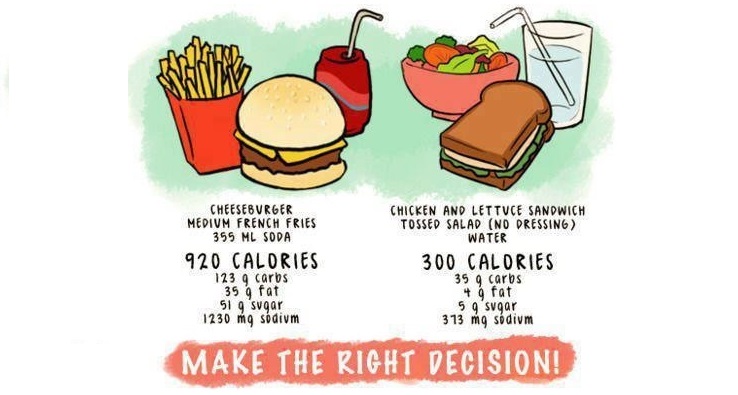Not exactly. While carbohydrate consumption alone isn’t enough to predict body weight, the overconsumption of carbohydrate may increase caloric intake to an extent that causes weight gain or prevents weight loss.

Energy balance (the number of calories consumed through food and beverage relative to the number of calories expended through exercise and activities of daily living) serves as the ultimate determinant of body weight.
If you consume more calories than you expend, you will gain weight. In order to maintain weight, the number of Calories you consume, as well as the number of calories you expend must be equal. In order to lose weight, you must consume fewer calories than you expend in order to create a caloric deficit.
Will a low-carb diet help me cut the Calories?
Low-carbohydrate (“low carb”) diets came into vogue in the 1970’s and have since remained a diet popular option for weight-conscious consumers. While many low-carb diets are overly restrictive, restricting carbohydrate can help control body weight to some degree.
In the modern food landscape, large portions of calorie and carbohydrate-dense food has driven the obesity epidemic. Although calories from all macronutrients (carbohydrate, protein, and fat) contribute to total caloric intake, carbohydrate is perhaps the most ubiquitous macronutrient, and certainly the cheapest to produce.
Consequently, the majority of packed snack, meal, and restaurant foods rely on large servings of carbohydrate-heavy foods and relatively small servings of protein heavy foods as a means to control cost and drive profit.
This means that, when you order a dish at a restaurant, it’s likely that you’ll be served a mixed dish that is predominantly carbohydrate with very little protein. Pasta dishes are a perfect example of where a cheap, high-carbohydrate food (pasta) is served in large quantities with only a small amount of added protein (for example, a meat sauce). The same goes for snack food and prepared meal aisles at the supermarket. Chips, crackers, granola bars, breakfast cereal, boxed pasta dishes, beverages, and frozen foods often rely on the same high-carb, low-protein ratio to increase profit.
Does carbohydrate contain more calories than protein?
Both carbohydrate and protein contain 4 calories per gram. While fatty meats (such as sausage, bacon, or red meat) contain more calories because of their higher fat content (with fat containing 9 calories per gram, the highest of any macronutrient), lean meats are typically calorically comparable to carbohydrate on a gram per gram basis. However, because carbohydrate is cheap to produce and protein is relatively expensive, most restaurants and food producers attempt to satiate consumers with large portions of high-carbohydrate foods to distract from the meagre amount of protein.
This means that consumers have, inadvertently, increased their carbohydrate consumption to an extent that carbohydrate now eclipses both fat and protein as a percentage of total calorie contribution. Consumption of high-carbohydrate beverages and snack foods has compounded the problem to a degree that most consumers are now eating and/or drinking 200% of their carbohydrate needs in a single day. By focusing on the reduction of carbohydrate, many consumers will succeed in controlling body weight, and may even lose weight.
The trick to losing weight while reducing carbohydrate consumption, is to still be mindful of total caloric intake. This means taking care to not increase calorie consumption elsewhere (protein and fat) to so great an extent that any calorie reduction accomplished by a reduction in your carbohydrate intake is not lost.
While some increase in protein is to be expected as a means to increase satiety, be mindful of how you’re eating habits change to reflect your reduced intake of carbohydrate. Tracking calories through weighing, measuring, and a food journal can help prevent any unintended sabotage at the beginning of a weight management program.
